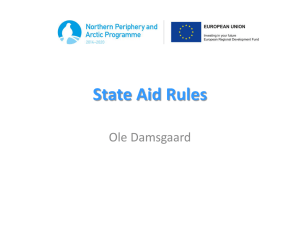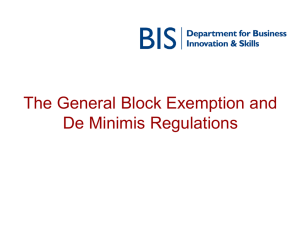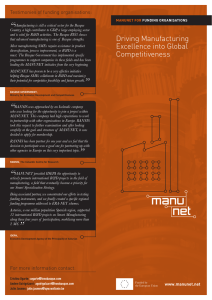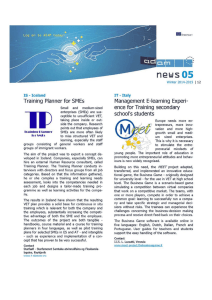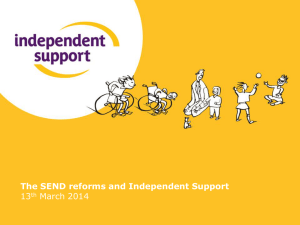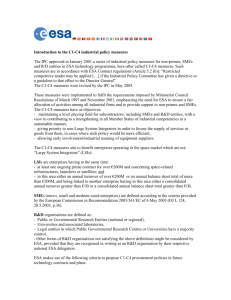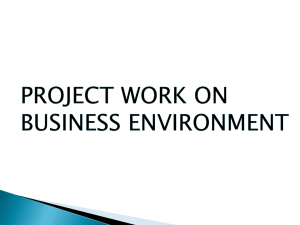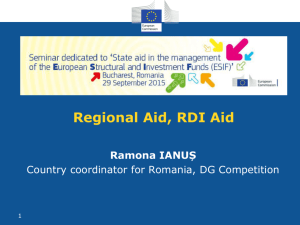R&D Presentation NI (PowerPoint 626 KB)
advertisement
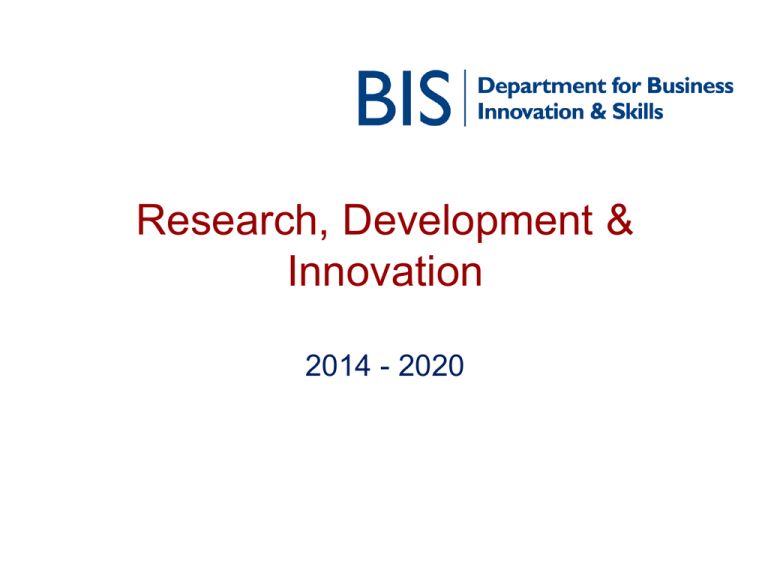
Research, Development & Innovation 2014 - 2020 Contents • Scope of R&D&I framework • GBER aid for R&D&I • Research Organisations and State aid Scope of R&D&I framework • Research and knowledge dissemination organisations • Indirect state aid via publicly funded research organisations • Public procurement of research and development services • Individual aid awards outside of the GBER GBER Aid for R&D&I • R&D projects and feasibility studies • Research Infrastructure investment • Innovation cluster investment & operating aid • Innovation support for SMEs • Process & organisational innovation • Local infrastructure investment aid • (Young innovative SMEs finance) Article 25 R&D projects • Notification thresholds doubled for all types of research • Repayable advance = add 50% to threshold and 10% to max aid intensity • Revenues from commercially usable prototypes & pilots – no longer deductible • Feasibility studies simplified at 50% (+SME bonuses) Article 29 Process & organisational innovation • Mainly for SMEs, but smaller amount available for collaborating large companies • For introduction of new and significantly improved processes & methods of working • Must be able to show the change is not driven by usual business cycle / pressures Eligible costs for Art. 25 & 29 Must be directly incurred for the project and eligible only to the extent used for the project: • Personnel costs • Costs of instruments and equipment • Costs of buildings and land • Additional overheads • Other operating expenses, including materials, supplies and similar products Article 26 Research infrastructure • Only applies to research structures (partly) used for economic purposes • Allows 50% aid for the economic part (and 100% for non-economic part) • Industrial partners contributing at least 10% can get preferential access - must be proportionate & terms publicly available. Article 27 Innovation clusters • For investment & operational costs • Investment costs – 50% of construction or upgrade of facilities • Operating costs - 50% for up to 10 years Personnel & admin costs of: – Start up costs of knowledge sharing & business support activities – Marketing – Management of facilities, training programmes & conferences Article 28 Innovation aid for SMEs • Single category covering: – Creating and defending IPR – Secondment of highly qualified personnel – Costs for innovation advisory & support services • 50% aid intensity – Can provide 100% for old Article 36 up to De minimis level Research Organisations and state aid • “Research and knowledge-dissemination organisation” • Considered outside of state aid rules when: – If 100% public funded, economic activity <20% – If public & private funded, public funding does not exceed costs of non-economic activities. • Otherwise, public funding of economic activities by research organisations are subject to state aid rules – Need to identify beneficiary and exemption Economic & non-economic activities • Economic activities: – Renting out infrastructure – Contract research – Supplying goods or services • Non-economic activities: – Public education – Independent or collaborative research – Wide knowledge dissemination Avoiding in-direct aid • Market price • Collaborative projects – Joint project (design, division of labour, access to results) with shared risks – Terms & conditions must be set before start • IPR must be held by Research organisation and may be widely disseminated unless paid for by industrial collaborative partner Further Sources of Info • European Commission website – http://ec.europa.eu/competition/state_aid/legislati on/legislation.html – http://ec.europa.eu/competition/state_aid/moderni sation/index_en.html
